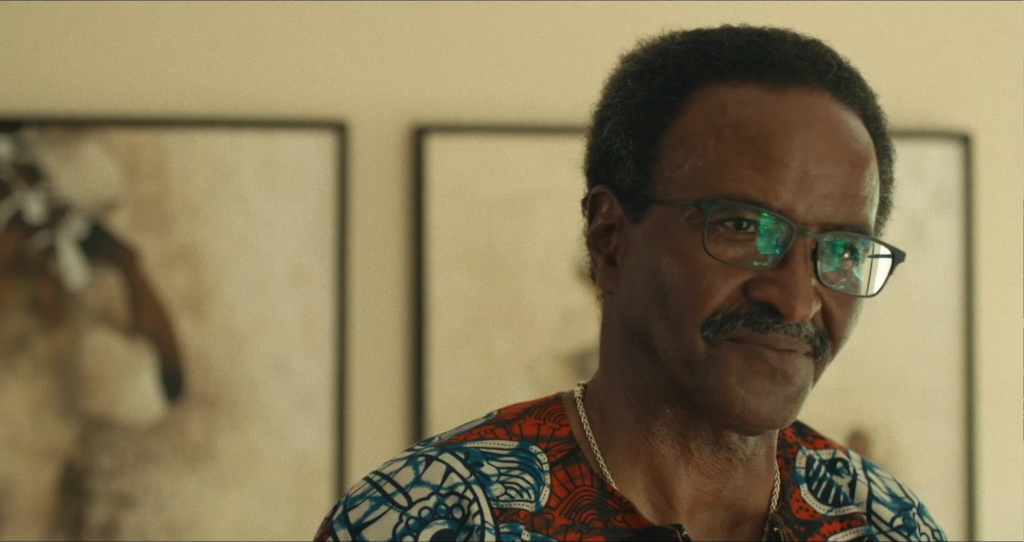What does it mean to be a descendant? The concept of ancestry is nebulous, abstract, and often taken for granted by folks who are lucky enough to be able to trace their genealogy. To be a lineal descendant is to be anchored in a longstanding history of real people who have existed before you — and have made your existence possible. Tracing your lineage can thus confer your existence with a sense of tangibility, for knowing your origins and the veritable line of ancestors preceding you can help you make better sense of who you are as you contribute to your family tapestry.
Margaret Brown’s “Descendant,” which premiered at this year’s Sundance Film Fest and took home a U.S. Documentary Special Jury Award, chronicles this very pursuit of ancestral history by the Africatown residents living in Mobile, Alabama, the destination of the last cargo of enslaved people who were kidnapped and forcibly removed from Africa. For years, descendants of the ship’s survivors have carried out a tireless archeological search for an artifact that would validate – and, above all, bring justice to – the history of its entire community: the fabled lost ship named Clotilda.
“The Clotilda represents a conduit,” Kamau Sadiki says in the doc, before a gathering of Africatown community members. “A conduit not only to the past of that story and this community, but a conduit to a very powerful future.”
Sadiki is a master diver of the Slave Wrecks Project, part of the larger community initiative to excavate the Clotilda, the last known ship to bring illegally enslaved people to the U.S. When it arrived in Mobile Bay on May 15, 1859 – 52 years after Congress banned the importation of enslaved people from Africa – the Clotilda carried with it between 110 and 160 captives who would be severed from their homeland forever. According to local lore, shipyard tycoon Timothy Meaher made a bet that he could violate the 1807 law without detection and thus orchestrated the illegal importation of enslaved Africans with the help of ship captain William Foster, and promptly burned down the evidence to conceal his crime. As Clotilda searchers point out in “Descendants,” the survivors had to watch as the only proof of their illegal enslavement — and perhaps last passage home — was destroyed.
The ship’s existence has since been preserved solely by oral history throughout generations of Clotilda descendants. The doc features Brown’s interviews with community members as well as archival footage of Cudjo “Kazoola” Lewis, the last known survivor of the Clotilda and the Middle Passage, recorded by Zora Neale Hurston as part of the novelist’s anthropological fieldwork in the American South. Tracing the labyrinthian process Africatown members underwent to locate the ship’s remains, the doc sees the descendants overcoming dead ends, red herrings, and institutional hindrances until detritus from the Clotilda was eventually discovered in 2019.
“I have no idea where my African ancestors came from but this is one group that can do that,” Sheila Flanagan, former director of programs of the History Museum of Mobile, comments in the doc. “The African American community, for one time, can say, ‘This is real, this is us. These people are part of us. We are part of them.’ And we won’t have to wonder any more […] It’s the validation of the African American community.”
As Brown reflected in conversation with us, “Though the ship was intentionally destroyed upon arrival, its memory and legacy weren’t.” She added, “The long-awaited discovery of the Clotilda’s remains offers this community a tangible link to their ancestors and validation of a history so many tried to bury.”
“Descendant” also considers the institutional and environmental obstacles that the Africatown community had to contend with amid its search for the Clotilda. The perimeter of the town is dominated by industrial zoning and over time, the heavy chemical industry has created detrimental effects on Africatown residents, including high instances of cancer and other health issues. The doc reveals that the land on which these factories stand – and perpetuate the generational trauma sustained by Clotilda descendants – are owned by the Meaher family.
Native Environmental Organizer Ramsey Sprague observes, “It’s astounding that the contours of injustice from 1860 to 2019 – in terms of who is doing harm unto whom — that those things are still cleavaged along the same people: the descendants of the Meahers and the descendants of the Clotilda.”
“This community has suffered tremendously so as we talk about healing and reconciliation, there has to be in that discussion a sense of justice,” Sadiki says in the doc. “You all should come up with what justice means to you. Now it’s time for justice.”
To Brown, “Descendant” is more than just a record of the Africatown community’s remarkable journey of ancestral reunion. She told us that she hopes the film will catalyze participation in audiences and that viewers will ask themselves, “Now that I’m a witness to this history and to the injustices that persist because of it, how do I actively participate in the story? What is my responsibility, and how do I engage?” She added, “I think that’s the key: What you do after watching the film is equally, and arguably more important, than what you think about.”
“Descendant” is now streaming on Netflix.







